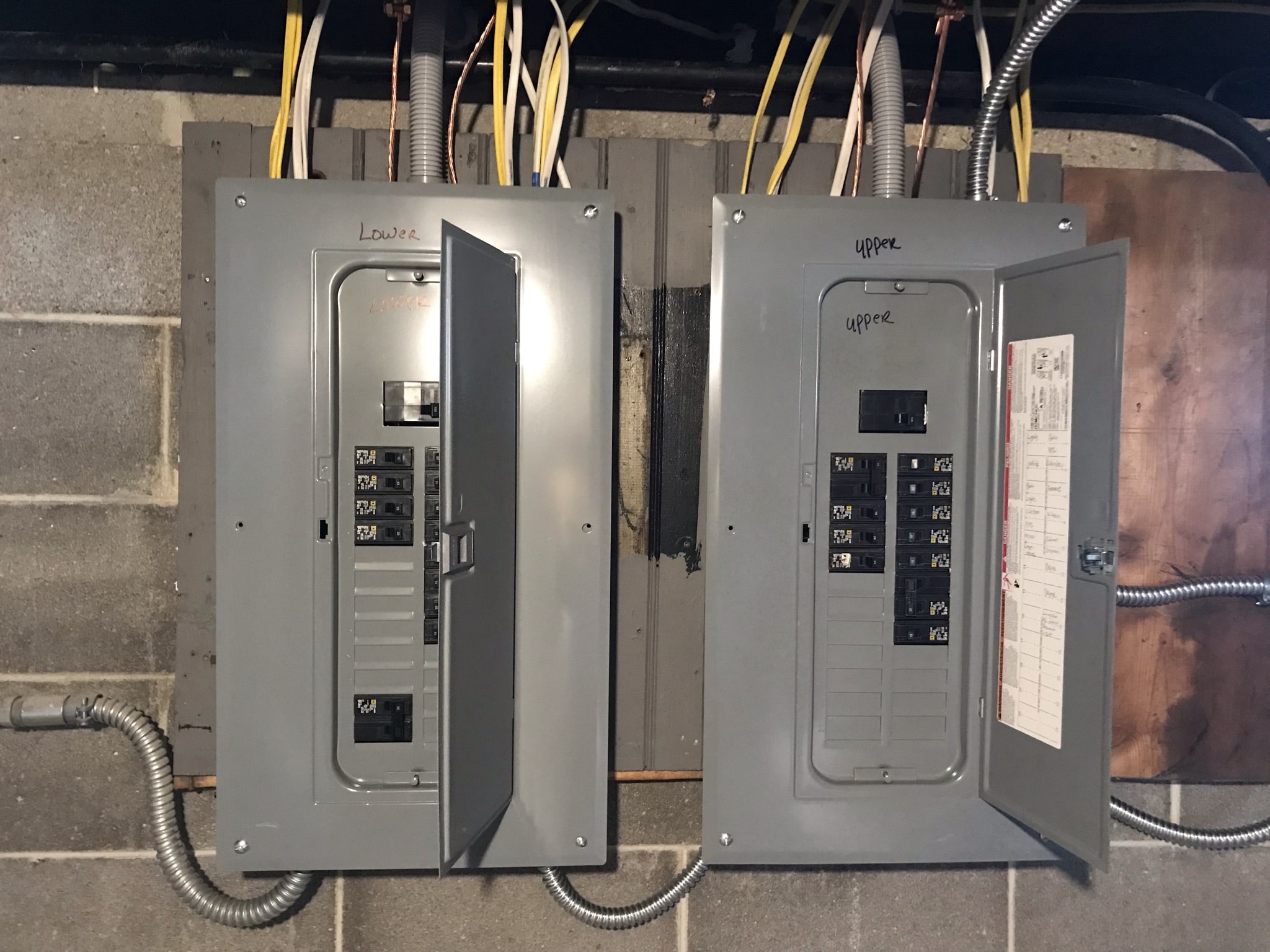Ask the Electrical Experts
Questions for the Electrical Experts!
Why are my dimmers always on?
If you are planning on installing dimming lights in your kitchen or bedrooms, here are a few tips for you.
First, make sure your dimmers are compatible with the types of fixtures that you are installing. For LEDs, look at the label on the dimmers box where it says, “LED compatible”. For incandescent lights, look for “to be used with incandescent light bulbs only”. If you use LEDs with a non-LED dimmer, you will notice the lights do not work properly, dim properly, and/or turn on or off completely. To fix this, make sure you use the correct bulbs with the correct dimmer.
How do I know if I need to upgrade my panel?
That is a loaded question! The first sign that you need to upgrade your panel is, at first glance, your home has a fuse box! Why does that matter? Typically fuse boxes are under 100 amps. Modern homes require about 200 amps or more because of the use of new, energy efficient appliances and the number of them in our homes. If the fuses are low amps, you will short them, and they will need to be replaced more frequently.
Fuses are more dangerous because fuses need to be larger in order to handle higher voltage demands of today. Putting larger fuses in a panel could create a fire hazard
Another reason to upgrade your panel is you notice that your breakers are repeatedly tripping. This is a sign that the breakers are not large enough or could be worn out.
Lastly, the greatest need to upgrade the panel is if there is a burning smell, warm or hot to the touch!
Why do I need to upgrade my panel?
For safety! To avoid shortages. To avoid fires. If you might be considering a remodel or addition, or if you are adding additional appliances to your house.
What is a GFCI and why do I need them? And where?
A ground fault circuit interrupter is a safety device that quickly interrupts a circuit. It comes in many forms, but the most common is as a receptacle (outlet). It is meant to protect people from serious harm and potential damage to equipment if there is a surge. You would use them anywhere that water is involved including a bathroom, kitchen, and as exterior outlets. It also protects against fires, overheating, and destruction of wire insulation.
How can I lower my electric bill?
If you are looking to lower your electric bill, the best practice is to turn off unused electrical devices. Switching to energy efficient LEDs instead of using incandescent bulbs and installing energy efficient appliances will lower the overall energy output. Newer technology requires less energy to run the newer appliances.
Should I be worried about outlets that don’t work?
Well, sure! If they don’t work, it could mean that there is a damaged wire. This could lead to a fire hazard. There could be faulty ground. The outlet itself could be worn or damaged. We recommend calling an electrician to have the outlet replaced and the wiring looked at.
What if I have an older house that has cloth wiring?
We recommend having the wiring replace. Cloth wiring, as it gets older, becomes brittle and can fail leaving the wires uninsulated which is a fire hazard. We recommend updating your home or business with the current method of wiring.
Why is my light switch hot?
If your light switch is hot, it could mean that there are too many fixtures hooked up to them and the electricity load is greater than what the switch is rated for. My recommendation is to get lower wattage bulbs, such as LEDs, or separate the number of fixtures on that given light switch and add another light switch.
Why is my dimmer warm?
It’s normal for dimmers to be warm to the touch. Dimmers work by diverting electricity from the lightbulb to a resistor. This allows you to raise and lower the brightness. In essence, it holds the electricity at the switch making the dimmer warm.
Can I DIY my own electrical projects?
Aside from changing out the lightbulbs, it is not recommended! There is a lot of risk to you and your home if not done properly. Each municipality has different requirements for permits.
Some municipalities allow homeowners to change out their own fixtures. Others may only allow you to change out a certain number of fixtures before they require a permit. The majority of electrical upgrades to your home or business require a permit to be pulled by a licensed electrical contractor. For example, upgrading appliances, installing a hot tub, installing and updating new fixtures, swimming pool, bathroom fans, exterior lighting, etc.
Authors: Sarah I.
Reviewed by, Marco Andersen, Expert Electrician
Disclaimer: Elcano Electrical and Construction accepts no responsibility or liability for the accuracy or completeness of the information and materials contained in this website. Under no circumstances will Elcano Electrical and Construction be held responsible or liable in any way for any claims, damages, losses, expenses, costs or liabilities whatsoever (including, without limitation, any direct or indirect damages for loss of profits, business interruption or loss of information) resulting or arising directly or indirectly from your use of or inability to use this website or any websites linked to it, or from your reliance on the information and material on this website, even if Elcano Electrical and Construction has been advised of the possibility of such damages in advance.

